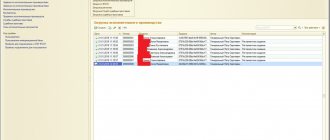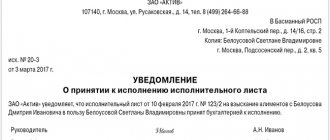As part of the FSSP proceedings, money is withheld from the debtor in favor of the claimant to reimburse the enforcement fee. In some cases, the debtor himself may demand the return of money - in case of overpayment, in case of erroneous withholding, or in case of cancellation of the writ of execution. Read in this material how to return money from bailiffs, what documents and actions are required for return.
Facebook won't help
Finding himself in such a situation, a person, as a rule, does not know what to do: where to run and should he run at all?
And in the first hours, forgetting about my legal education, I succumbed to emotions and could not figure out what to do. Many turn to the help of the all-powerful Facebook, writing angry posts blaming the bank, asking for advice, calling friends, acquaintances, and relatives. Nobody offers anything sensible. “I have a good lawyer - he’ll get it inexpensively”... “Go to court!”... “Yes, you can demand such moral damages from this bank!”... “Say that you were sick and you urgently needed medicine, but they took it away from you last money!" This is all bad advice. Even harmful ones. Because at the initial (and preferably the only) stage, you can deal with the problem yourself.
Here are step-by-step instructions on what to do if your funds were wrongfully seized by the Federal Bailiff Service. I pay special attention to the word “illegal”. Based on personal experience. So…
Return to the debtor of what was overpaid in enforcement proceedings
General conditions for the return of overpaid funds to the debtor
The procedure and procedure for returning funds to the debtor is a fairly simple and clearly regulated aspect in the enforcement procedure.
The funds remaining after distribution are transferred (issued) to the debtor. If the bailiff does not have the opportunity to do this, they are kept in the account of the enforcement agency for three years, and then transferred to the republican budget <*>.
The distribution of collected funds within the framework of enforcement proceedings is the final stage of enforcement proceedings, during which the bailiff may discover excess funds. In this case, the bailiff is obliged to transfer (issue) the remaining amount to the debtor.
When his current account is out of date or closed, or when there is no information about the current account, the bailiff is obliged to notify the debtor of overpaid funds.
The debtor is considered to be properly notified if the bailiff has information that the addressee received the correspondence sent to him <*>.
The bailiff is obliged to notify the debtor by letter with a return notification or through the use of electronic and other types of communication that ensure recording of the fact of receipt <*>.
The practice is that SMS is considered an appropriate form of notification. The proper form of notification will also be a letter with return notification to the legal address of the debtor, regardless of its actual location.
Neither the Law on Enforcement Proceedings nor the Instructions on Enforcement Proceedings contain any time limits within which the bailiff must send a notification of the availability of funds or transfer the overpaid amount.
If the debtor has received proper notification of the return of excessively collected funds, but has not informed the bailiff about the method of their return, these funds may be sent to the republican budget within three years from the date of receipt of the notification.
If, before the transfer (issuance) of funds, new enforcement proceedings are initiated against the debtor or suspended ones are resumed, or the grounds for postponing the enforcement action no longer exist, the remaining funds are used to pay off the debt under these enforcement proceedings <*>. Moreover, the amounts of overpayment located in the account of the enforcement agency may be transferred to other collectors even at the stage of voluntary execution <*>.
Specifics of the return of overpayment to a debtor - an individual
The bailiff must always notify the debtor - an individual - about such funds, since individuals do not have current accounts. Refunds are made in cash at the cash desk of the bank branch servicing the current account of the enforcement agency.
However, neither the Instructions for Enforcement Proceedings nor the Law on Enforcement Proceedings prohibit the return of funds to an individual’s card account. Therefore, we recommend that the debtor - an individual who has received notification of the remaining amounts - apply for their return to his card account.
Specifics of the return of overpayment to a debtor - a legal entity
In practice, sometimes the bailiff forecloses on the debtor's funds by sending orders with payment demands to all of his current accounts <*>.
Banks are required to comply with these requirements.
For the debtor, this means that if funds are available, they can be written off from current accounts at a time in an amount exceeding the amount of the debt.
It is necessary to understand that in such a situation there are no violations either on the part of the banks or on the part of the bailiff.
At the same time, the bailiff must act according to the general mechanism: notify the debtor and return the overpaid amounts.
Specifics of the return of overpayments by the debtor directly to the claimant
In practice, the debtor can repay the debt directly to the collector, which, in turn, does not exclude cases of overpayment for various reasons.
The Law on Enforcement Proceedings does not prohibit making payments directly, but obliges the debtor to notify the bailiff about this by submitting supporting documents <*>.
In such a situation, the Law on Enforcement Proceedings does not oblige the bailiff to take any measures to return the overpayment. Therefore, the debtor needs to act independently.
If it was not possible to reach an agreement with the claimant on the voluntary return of the overpaid amount, the debtor has the right to file a claim in court for the recovery of amounts of unjust enrichment <*>.
For such claims, the statute of limitations is three years from the moment the debtor learned or should have learned about his violated right <*>.
Judicial practice proceeds from the fact that the debtor, as a legal entity, is obliged to know about all its financial transactions. In other words, in the event of an overpayment by the debtor to the collector directly, the statute of limitations for filing a claim for the return of amounts of unjust enrichment will begin to run from the moment of payment, and not from the moment when the collector notified the debtor or refused to return the overpaid amount.
General recommendations for debtors on the return of overpaid amounts
1. The debtor may independently, before distributing the collected funds, contact the bailiff with an application for their return, if there is reliable information about the overpayment (documents confirming the fact of the overpayment).
This method will in no way oblige the bailiff to return the overpaid funds until the funds are distributed. But this will help the bailiff to promptly return them.
2. Both the claimant and the debtor are sent a decree on the distribution of funds, from which the received amount and the amount of debt under the writ of execution <*> are visible.
The debtor, having concluded that there has been an overpayment, has the right to contact the bailiff with an application for the return of the overpaid amounts, in which it is necessary to indicate the bank details of the current account for the transfer.
This will also help the bailiff to promptly return the funds.
Please note that the bailiff is obliged to respond to the application within 10 working days <*>.
Refund of overpaid amounts of money from the republican budget
It is theoretically possible that the bailiff not only did not notify the debtor and did not return the overpaid amounts, but also transferred them to the republican budget.
The only way out in this situation is to file a claim to recover amounts of unjust enrichment from the republican budget.
However, there is difficulty in determining the moment when the debtor learned or should have learned about his violated right. The establishment of such a moment directly affects the statute of limitations for filing a claim.
Thus, there is a point of view that the statute of limitations does not begin to run for the debtor if the bailiff has not complied with the requirement for proper notification in accordance with paragraph 187 of the Instructions for Enforcement Proceedings.
There is logic in this position: The instructions for enforcement proceedings oblige the bailiff to notify the debtor and return the overpaid amounts, but does not establish a period within which this must be done. In the case where the debtor has no idea about the overpayment, the fact of a violation of his right does not exist until due notification. Accordingly, the statute of limitations does not begin to run.
According to another point of view, the moment when the debtor learned or should have learned about his violated right can be considered the moment of overpayment.
In other words, the debtor in any case must know for sure how much and to whom he pays. Therefore, it is at the moment of an erroneous payment that the debtor must learn about his violated right.
conclusions
1. The procedure for returning amounts overpaid to the debtor is regulated by the Law on Enforcement Proceedings and the Instructions on Enforcement Proceedings
2. The bailiff is obliged to return the amount of the overpayment, and in the absence of information on where to make the transfers, send the debtor a notice of the need to submit them.
3. The debtor should take an active position and independently take measures to return the overpaid amounts.
4. The debtor has the right to file a claim in court for the return of amounts of unjust enrichment in a situation where he believes that the bailiff unjustifiably transferred funds to the republican budget.
Why was the money written off?
To the question: how to find out why the bailiffs wrote off the money, there is a simple answer. First, you should visit the nearest bank branch, where you will be provided with a statement about the debit of funds. Information about the claimant and enforcement proceedings will be reflected there.
Next, you need to go to the official website of the FSSP, where in a special database, indicating your full name, you will find out all the necessary information. The number of the enforcement proceedings, the name of the bailiff and the address of the department where your case is stored will be indicated here. To do this, you need to visit the official website at the link https://fssprus.ru/iss/iP in the service section of the database of enforcement proceedings.
In order not to become a party to conflicts with bailiffs and to always be confident in the safety of your income, you should adhere to the following recommendations:
- Regularly monitor the FSSP website;
- Consistently check the mailbox and be attentive to judicial or executive correspondence;
- If possible, try to receive wages in cash;
- Keep records of targeted cash receipts, such as alimony or child benefits;
- Do not dispose of checks and other documents confirming bank transactions.
How to write an application for a refund from bailiffs?
To ensure that the application for the return of funds that were unjustifiably collected by the bailiff is not rejected, it must be completed while maintaining the structure of its content.
The application is written on a sheet of A4 paper. The application must be accompanied by materials confirming the evidence displayed in the letter:
- A copy of the resolution on opening an enforcement case
- Written objection appealed.
When making a request for a refund, you must display the following information in the document:
- Information about the bailiff, his full name, position and full name of the structural department.
- Information about the applicant, full name with display of place of residence and contact information for prompt communication.
- From a new line in the middle you need to write the name of the form - “application”.
- The next line shows the justification that the bailiff illegally debited such and such amounts from the bank account:
- In the request, it is necessary to display in detail, with maximum accuracy and completeness, the reasons why the applicant’s request should be fulfilled.
- Refer to the enforcement case, which was accepted as the basis for seizing the account.
- Show in detail the consequences that the bailiff's actions led to.
- Refer to a rule of law that was not followed by the bailiff
- List the materials added to the application to support the requirements.
- Signature and date of the completed form.
Service of the application can be ensured either personally by the applicant or through an authorized person holding the appropriate power of attorney.
Procedure for consideration of the application
The application must be reviewed by a FSSP employee within thirty days. If the bailiff finds the arguments presented by the applicant sufficient, he will cancel the previously issued penalty order. In this case, the funds must be returned to the debtor according to the details specified in the application. If the money was transferred to the collector, the bailiff sends a demand for its return.
If the arguments presented are not sufficient, the debtor will be given a written refusal. The applicant has the right to appeal the decision in the order of subordination or in court.
Errors
Among the possible errors encountered when drawing up a notice of overpaid amounts of money, it is worth highlighting:
- incorrect filling of bank details for return;
- absence of the official seal of the organization (if the letter is not written on company letterhead and signed not by the head, but by another official);
- unreasonable demand (lack of data on payment and amount of overpayment).
If there are such errors, the refusal to refund will be lawful.
Legal regulation
When making payments, an organization may allow an overpayment due to:
- inattentiveness of employees filling out documents;
- unreliability of information from the accounting service about the amount of payment.
Transfer of excess funds can be carried out:
- employee of the organization;
- to the counterparty;
- government agencies (treasury, tax service, inspectorate, etc.).
The obligation of a person who unreasonably receives any property from another entity to return it is provided for in Article 1102 of the Civil Code of the Russian Federation. When an organization transfers excess funds, the person who receives such amounts receives an illegal material benefit.
Even if funds in excess of the norm are transferred by the organization independently, the receipt of such a benefit by another entity is unreasonable and on the basis of Art. 309 of the Civil Code of the Russian Federation creates an obligation to return overpaid amounts.
Unilateral refusal to fulfill obligations and unilateral changes in its conditions under current legislation are not allowed, regardless of who receives these sums of money. Therefore, when an error is identified, the affected company may resort to various methods to protect its interests. And first, on behalf of the organization, a notice must be sent to the enriched entity.









